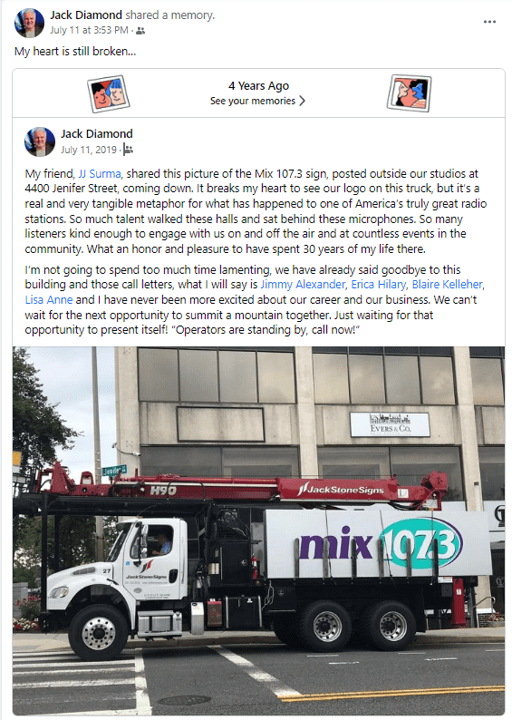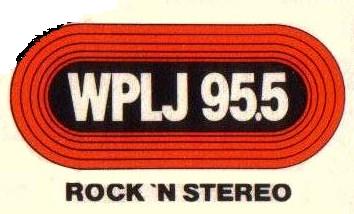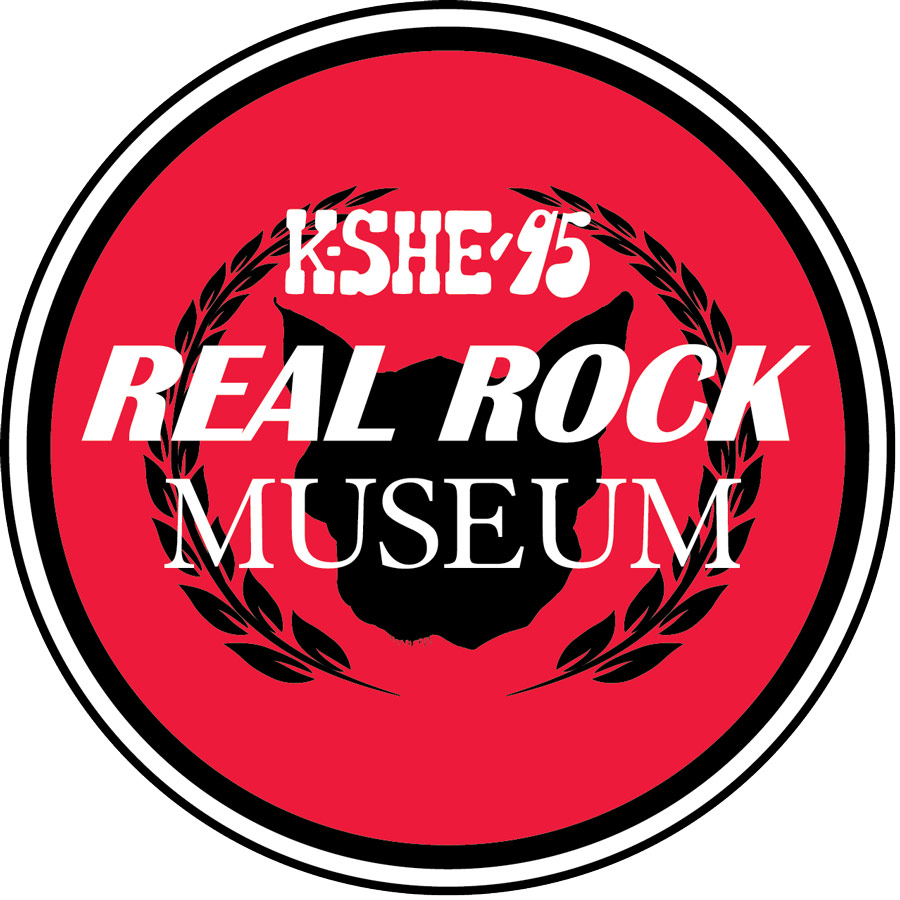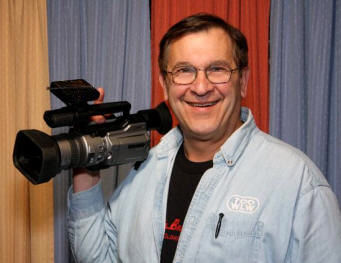
Today’s #TBT is exactly four years old. And while its title is accurate, it’s a bit bland. I might have called it “The Day The Music Burned” because that’s more descriptive. It’s a story from the record label side of the business, but its application to radio will soon become obvious.
As radio companies have changed hands and staffs have precipitously shrunk in size, keeping track of station archives is very likely an issue at more facilities than we can imagine. And the reverberations of COVID suggest many station clusters will soon be moving – to much smaller facilities. Fewer employees and the continuation of WFH patterns demand less opulent and considerably smaller spaces.
If a move is in the offing for your operation, who will be minding a station’s archives – its recordings, its music, its physical collections of merch and archival material? Typically, physical moves on this scale are a massive undertaking, often done in phases, moving one station or one department at a time over a period of weeks or even months. Keeping stations on the air and commercials booked during these transitions can get complicated and even chaotic.
On Facebook yesterday, veteran personality Jack Diamond mourned the demise of Mix 107.3 in Washington. Yup, it happened back in 2019 also when the station was also sold to a Christian broadcaster. Jack reshared his post containing an evocative photo of the station’s building sign being trucked away.

But what happened to Mix 107.3’s archival material? Is it being kept anywhere by someone who worked for the station? Or like the sign itself, was it shipped to a waste site, never to be seen or appreciated again? Ironically, I did considerable work for the station several years before Diamond was hired. Back in the late 70’s, WRQX was owned by ABC Radio, and was known as Q107. Programmed brilliantly by Alan Burns and managed by Ernie Fears, the station rapidly rose to legendary status in the market with a brilliant marketing scheme, great programming, and no shortage of buzz. I did considerable research for Q107 back then, and had a ringside seat to its historic rise. So, where is all that Q107 historical stuff today? Is it in Alan Burns’ or Marty Wall’s storage lockers or has it disappeared forever?
All of this begs the question about who will be making sure a station’s historical records and collections will be accounted for and preserved? In other words, who’s minding your archives? Go ahead and read this post from four years ago, and please leave any thoughts about what you’ve seen/what you’ve done/what you’re doing in the “comments” section below. – FJ
July 2019
Maybe you saw that amazing story in The New York Times Magazine last month. “The Day the Music Burned” by Jody Rosen is an amazingly detailed analysis of a music story most of us knew little to nothing about. Seth covered it in his “Connecting the Dots” blog – and its relevance to radio struck me, especially with last week’s headline about Taylor Swift’s first five albums.
So, here’s the story. In 2008, a fire blew through a Universal Studios Hollywood lot, including several familiar movie sets, as well as a back warehouse. It turns out that building contained a treasure trove of classic Universal Music Group recordings – the original raw masters of individual studio tracks by hundreds of musicians.
The fire was downplayed at the time, but it turns out irreplaceable archive material – and a ton of it – was destroyed in that fire.
Rosen sums it up this way:
“It was the biggest disaster in the history of the music business.”
From the old days, we’re talking about recordings from Louis Armstrong, Duke Ellington, Ella Fitzgerald, and Judy Garland.
Then there was the blues – Muddy Waters, Howlin’ Wolf, Bo Diddley, Etta James and many more – recordings that were lost forever.
Rosen tells us almost all of Buddy Holley’s masters went up in flames, along with a list of other iconic artists that is mind-boggling:
Sammy Davis, Jr, Neil Diamond, B.B. King, Eric Clapton, the Four tops, Tom Petty & the Heartbreakers, Guns N’ Roses, Beck, Steely Dan, Aerosmith – and hundreds more. And those are just some of the ones they know about. Think about all the obscure artists whose recordings literally went up in flames that June day, never to be heard again.
In his story, Rosen lovingly describes what it means to have lost these treasures in the Universal fire. I’ll leave the task of reading his amazing chronicle of this disaster to you, rather than try to paraphrase his brilliant writing. It speaks for itself.
But suffice it to say, I read Rosen’s potent essay and began to think about just how many radio station archives are treated as cavalierly as this stash of priceless recordings. There was no fireproof vault or even great care taken to protect these gems, unlike the ways in which galleries protect paintings.
Why was the Universal fire hushed up at the time? Rosen suggests it was about how the artists themselves might have reacted had they known the full extent of the blaze. These masters are precious to musicians.
 And Rosen quotes Prince who once noted while involved in a dispute with Warner Brothers, “If you don’t own your masters, your master owns you.”
And Rosen quotes Prince who once noted while involved in a dispute with Warner Brothers, “If you don’t own your masters, your master owns you.”
The Universal blaze may, in fact, be the worst disaster of its kind. But Rosen chronicles other debacles that ended up destroying all sorts of recordings. A lot of these have been due to what he calls “shoddy storage practices,” along with mislabeling, misfiling, and other screw-ups.
Rosen points the finger at how the structure of the music business has changed over the years, as smaller companies have consolidated into a handful of big ones. He points out that in the heat of sales, IPOs, and calculating EBITDA, no one may be thinking a whole lots about the archives.
Rosen also notes that proper storage and protection of recordings is far from cheap. And as we know from radio experience, the first thing that happens in a merger, buyout, or takeover is cost-cutting and economies of scale.
And that’s what Taylor Swift is experiencing right now, as a result of the sale of her former label, Big Machine, to manager Scooter Braun.
That rekindled a Swift/Braun feud that dates back to that uncomfortable interlude with Kanye West. Braun now owns the master recordings to Swift’s first six albums. As The New York Times remind us, that means controlling the rights to song licensing for movies, TV, and video games, in addition to how and where her tunes appear.
In this case, Swift lost her archives to a questionable business deal. But that doesn’t change the importance of these irreplaceable assets.
So, what does this have to do with radio, aside from the obvious music connection?
When I read “The Day the Music Burned,” it was around the time that WPLJ was in its final throes, waiting to be taken over by a new owner – Christian giant EMF – featuring a completely different business plan for this venerable FM station in the nation’s largest market.
Yes, the call letters were going away, the old format was over, and management was left to selling commemorative T-shirts.
 But what of the WPLJ archives? Who ended up with them? And have they even existed all these years, as the station was sold from ABC to Cap Cities to Citadel to Cumulus?
But what of the WPLJ archives? Who ended up with them? And have they even existed all these years, as the station was sold from ABC to Cap Cities to Citadel to Cumulus?
Like the majority of radio stations in America, WPLJ changed hands, not once, not twice, but several times. That describes some of the biggest and best call letters in the U.S. historically.
And here’s an example that occurred to me during the “celebration” of PLJ a few weeks back: Elton John famously recorded a live album that was broadcast on PLJ (then WABC-FM) in front of a small audience. Called 11-17-70, it is an amazing performance by an artist who was just emerging at the moment in time. The pictures, the interviews, the songs that never made the album?
I was thinking of that seminal moment – capturing an emerging superstar on the radio – while watching the film Rocket Man a few weeks ago. No, that moment wasn’t covered in the film, but New York radio fans of a certain age probably recall it well.
So what of PLJ’s archives, its rich history, the photos, the interviews, the TV spots, the merch, the recordings?
For every station like KSHE where so much of their material was lovingly saved, protected, and ultimately put on display in their online “Real Rock  Museum,” there have to be scores of stations where the archives have been lost, disappeared, or pillaged by staffers during moves and sales.
Museum,” there have to be scores of stations where the archives have been lost, disappeared, or pillaged by staffers during moves and sales.
Think about stations like WBCN, KMET, the Loop, and so many others. What happened to their histories, their pasts? How will we remember them even a decade or two from now if these artifacts from their past no longer exist?
It makes you wonder if the radio industry – and certainly the bigger companies – could derive value out of archivists – record-keepers, protectors of radio’s past.
But that would cost money – perhaps plenty of it – to save, salvage, preserve, and protect these materials.
Come to think of it, the only consistent “archiving” the radio industry has been engaged has been done voluntarily by an aging videographer here in Michigan – Art Vuolo.
Everyone knows Art – if you go to virtually any radio conference, from Don Anthony’s Boot Camps to Conclave to the Worldwide Radio Summit, there’s Art, recording the event on video so that future generations might understand just what the business was all about last year, last decade, or during a time when you weren’t even born.
Watching Art’s Archives from the early days of radio is a reminder of how the business has changed – and how it hasn’t.
 Over the years, Art Vuolo has become known as “Radio’s Best Friend.” That’s because he has selflessly took it upon himself to get his beloved industry down on video so we – and our kids and grandkids – can enjoy it. If you’ve had a chance to talk to the man behind the camera over the years, you know he loves radio more than many people who have earned riches and fame from being behind the mic or sitting in the corner office.
Over the years, Art Vuolo has become known as “Radio’s Best Friend.” That’s because he has selflessly took it upon himself to get his beloved industry down on video so we – and our kids and grandkids – can enjoy it. If you’ve had a chance to talk to the man behind the camera over the years, you know he loves radio more than many people who have earned riches and fame from being behind the mic or sitting in the corner office.
But if you’ve also noticed the past few years, Art is no longer that bouncy thirtysomething guy wearing his prized WLS sweater, running around hotel ballrooms with a camera on his shoulder. Travel has become more difficult, and you can look in Art’s eyes and know the day will come when he will put that lens cap on his video camera for the last time and call it a career.
He’s “Radio Best Friend” alright, but he’s also “Radio’s Only Archivist.”
There’s a handful of others – “Radio Rewinder” (@radiorewinder) publishes old playlists, photos, and stories from long-gone publications like Radio & Records. My old MSU radio buddy, Scott Westerman, has done an amazing job archiving Keener 13 – the legendary Top 40 station here in Detroit that so many Baby Boomers grew up with in the ’60s.
& Records. My old MSU radio buddy, Scott Westerman, has done an amazing job archiving Keener 13 – the legendary Top 40 station here in Detroit that so many Baby Boomers grew up with in the ’60s.
But these efforts are few and far between. Oddly enough, the phrase “keepers of the flame” came to mind when I started thinking about the Universal fire, and the neglect that has surely happened throughout the radio industry and its history these past several decades.
The past is the past.
But not to be able to remember it, celebrate it, and share it with future generations is just sad.
You can read Jody Rosen’s story here.
Thanks to Randy Kabrich who was the first to send it to me.
- For Radio, Will It Be Christmas In April (And Hopefully, May)? - April 21, 2025
- Media And Technology In 2025: Believe It Or Not! - April 18, 2025
- In Radio, You Just Never Know - April 17, 2025





This topic has come at quite the coincidental time for me: I just recently completed digitizing my entire 46-year collection of airchecks, song parodies and production highlights — material that dates back to my college radio days and scattered about on reels, cassettes, DATs and MiniDiscs. It was a task I’ve been putting off for years and finally tackled after my most recent move.
It all now resides on two redundant portable hard drives and two “archival” DVDs.
Not as valuable as the contents lost in the Universal fire, but priceless to me.
We actually did an archival project here in Eau Claire, WI! Back in 2014, we were clearing out a lot of, well, stuff that had accumulated over the decades, so a couple of us made sure to hold on to one-time only things like jingle packages, videotapes, certain paraphernalia, and such, while also dubbing some old reel-to-reel tapes to digital. We now have a couple shelves in our storage room dedicated to the archive (with a bold “DO NOT THROW AWAY” sign on it 🙂 ).
Thanks for sharing this story, Luc, and congrats on taking responsibility for your archives.
One of the (many) down-sides to media consolidation has been the take-over of stations by owners who are often not very interested in preserving station history– unless there’s a way to monetize it. But whether there’s a way to make a few bucks from it or not, history matters. It’s a way to look back on where we were. It’s a way to pay tribute to those who got us here. It’s a way to remember the great personalities or great promotions from bygone eras. And it’s a way to remember even some of the ordinary personalities and promotions– something or someone can be perceived as not especially noteworthy at the time, but very important to look back on years later: I recall working at WRNW in Briarcliff Manor, NY early in my career, and one of my colleagues was a very young and not yet famous Howard Stern. As a former broadcaster, and a long-time media historian, it breaks my heart that so many stations have just tossed out their old tapes, as well as their old memos and photos and other memorabilia that could help us in present day to better understand who worked there and how these stations operated. But again, in a world where a handful of corporations own a multitude of stations, live & local radio is often not a priority; and neither is preserving a station’s history.
Fred, thanks for re-running this piece. Thanks also for giving me so much space. You’re too kind, but you better make my birthday party in late September. I’m aging but pretty well and still doing lots of video. The only problem is there is seemingly less great talent on the air these days.
My video on YouTube “History of the American DJ” is still a great montage of radio personalities, but sadly OVER 65% of those shown are now deceased. Damn shame, but I’m glad I was able to capture them for future generations to enjoy!
I’m glad you were around tape them, too, Art. You’ve done a tremendous service to the industry. But moving forward, who’s going to do what you did? (See you at your birthday!)
There is context to the Universal fire that has not been mentioned much. Most recording tape from the 1950s on is falling apart. I’m told that all of those tapes had been restored and transferred to high-definition digital prior to being stored there.
Our stations moved three times over a four year period. One of the moves you documented in this blog. Fortunately it gave us the opportunity to organize and correctly store a trove of items from an 85 year history.
But a bigger collection of radio history resides with each individual who has had a career in radio. I have carefully saved all types of documents, memos, promotional materials, air checks, tapes, etc. from my 54 years. It’s not a pack rat mountain of material but rather key items that tell my story. The story of the people I worked with who were pivotal in my success. As well as each station’s good times and challenging times. Plus, I’ve been blessed to do a ton of traveling and have amassed a collection of air checks from around the country.
This is the ONE thing everyone needs to do NOW. Make sure you have written instructions in YOUR WILL as to what to do with your “Radio Stuff” to preserve it when you pass. My guess is most families of broadcasters will cherry pick some of your broadcast memories as a remembrance. But let’s face it no one in your family is gonna wanna to listen to a Grant Horton 55/KSD air check from 1975 or a Nick Charles KXOK air check from 1970. Those will become landfill material.
I have it specifically spelled out in my will what archivists are to receive my tapes and radio materials my family does not want. Plus, I have a pop/rock/soul music book collection that is going to a local library.
Hopefully, when I fully retire, I will be able to digitize all the audio in my collection. But if not, all the effort I put in to preserving this this stuff will not be for naught.
Spell out your wishes so your radio materials are not lost for a future generation.
Mike, this is great advice, especially detailing your wishes in your will. I hope everybody reads this – please share it. Thanks again, Mike, and congrats on taking care of this history.
I am obsessed with filing and saving everything. I have recordings of my first radio shows, press clippings, stickers, and hundreds of photos from all the stations I’ve been through in my long radio career.
Unfortunately, this is becoming less and less common. Many people do not value the history of a station. People are not interested in knowing the legacy of the radio stations they work for or how those stations have managed to survive over time and reach the recognition that the stations enjoy today.
In my case, I worked in the 2 largest radio stations in Colombia, Caracol and RCN. They have made history, but much of that history was erased, discarded, forgotten.
The original tapes of radio soap operas, great reports, comedy programs, important interviews and much more were over-recorded, erased or simply thrown away.
The huge music libraries on vinyl records ended up in dank cellars at transmitter sites, where rats and inclement weather destroyed them.
In 2005, as National Programa Director of Music Stations, I decided to create a music library in Caracol Radio. It was called ‘La Fonoteca’.
In this way we made a general inventory of all the music, classified, archived, and indexed everything properly. Likewise, we were able to recover hundreds of tapes with hours of programs and production elements from different stations of their different formats and stations.
This was hard work that took several years, but in the end, it had a happy ending when all those audios were digitized.
It was not possible to recover even 30% of the history of that radio company, but at least, since that time, there is already a methodology and an archiving system that, although I have not worked in that company for more than 15 years, they still thank me.
But, beyond the gratitude from Caracol, the most important thing for me is the peace of mind of knowing that this legacy is already in good hands and available to those who need it, either as an internal consultation within that company, or for the public in general.
In fact, it is very possible that these files are currently being shared to the general archives of the Nation, in a project called ‘Memoria Histórica’ of the National Radio Broadcasting System, Radiodifusora Nacional de Colombia.
Tito, this is a great comment and it speaks volumes about who you are, both as a broadcasters and a person. It’s a great story, and I hope other broadcasters take the time to read it.
There’s a documentary about the early days of WBCN that gets shown on PBS now and again that can be streamed for a few dollars. I remember listening to that Elton John concert on PLJ – they did a really well designed ticket giveaway to the show. The promo copy was something like, “If you think Elton John’s albums are great, you should hear him live…”. I searched for it, but if anyone posted it somewhere it eludes Google.
There are so many great radio moments I wish were available. I’d love to know if some of the stuff I though was brilliant as a teenager still seems so to this doddering old man. It would also be nice if what exists of old radio archives were catalogued and easily searchable. Everything noteworthy done recently is in the cloud, not so for the analog, magnetic tape days and I hope a real movement springs up to catalogue/archive and make those great moments available.
And yeah, Art, thanks for your loving efforts recording so many of radio’s great events.
I’m not sure all the radio from the 60s and 70s would hold up real well today, in the same movies from the past look “old,” stilted, and forced. I remember there being a lot of gratuitous moments in between the brilliance. And like you, I wonder how it would sound to PPM-damaged ears.
Great blog, Fred!! One small thing: Art Vuolo (a longtime good friend) isn’t “Radio’s ONLY Archivist” – he’s certainly “Radio’s Video Archivist”. But there are hundreds of aircheck collectors that act as archivists for our medium, even when the stations don’t.
I’m sharing your blog widely with the aircheck collecting community, and this is probably as good a time as any to let people know that following his death in Belgium almost two years ago, the contents of Tom Konard’s Aircheck Factory are safe and secure here in the United States! Ownership was conveyed to me and it was all shipped from Rotterdam to the USA and received in March, 2022. His family wasn’t fully aware of the importance of this material in terms of how it showcases the world’s broadcasting culture of the last 75 years in particular, and they were happy to learn that the legacy of his life’s work will continue.
I’d love to share it all right now – The thing is, I am just getting resettled in a brand new job in a new city and would have no time right now to fulfill requests for copies, swaps, etc. I’m in the process of unboxing some of it and doing an inventory and digitizing everything…but this will take a couple of years.
I have had many kind offers of assistance in getting this done, but it’s not terribly practical to split up the collection. I’d like to tell Tom’s story and keep his collection intact.
My plan is to launch a website sometime in mid 2024 to begin showcasing the material…possibly sooner. One of the first things to be presented will be a spreadsheet of all of the airchecks.
But, the 4,000 + exhibits in his collection…all 10,000 hours from 21 nations around the world are safe.
Fun facts: there are 4,000 + exhibits in his collection…over 10,000 hours from 21 nations. The weight of the collection was almost 1,100 pounds. Some of it had already been transferred off of reels and on to more stable formats – a relief because reels don’t hold up so well over the years.
Thanks for reading –
Jay Philpott
Curator of “Tom Konard’s Aircheck Factory”, currently being inventoried and digitized. I have an email address, but I only check it once a week or so at this point.
[email protected]
TheAircheckFactory.com
(in development)
Jay, this is truly remarkable, and I’m please you shared it here. Thanks for this.